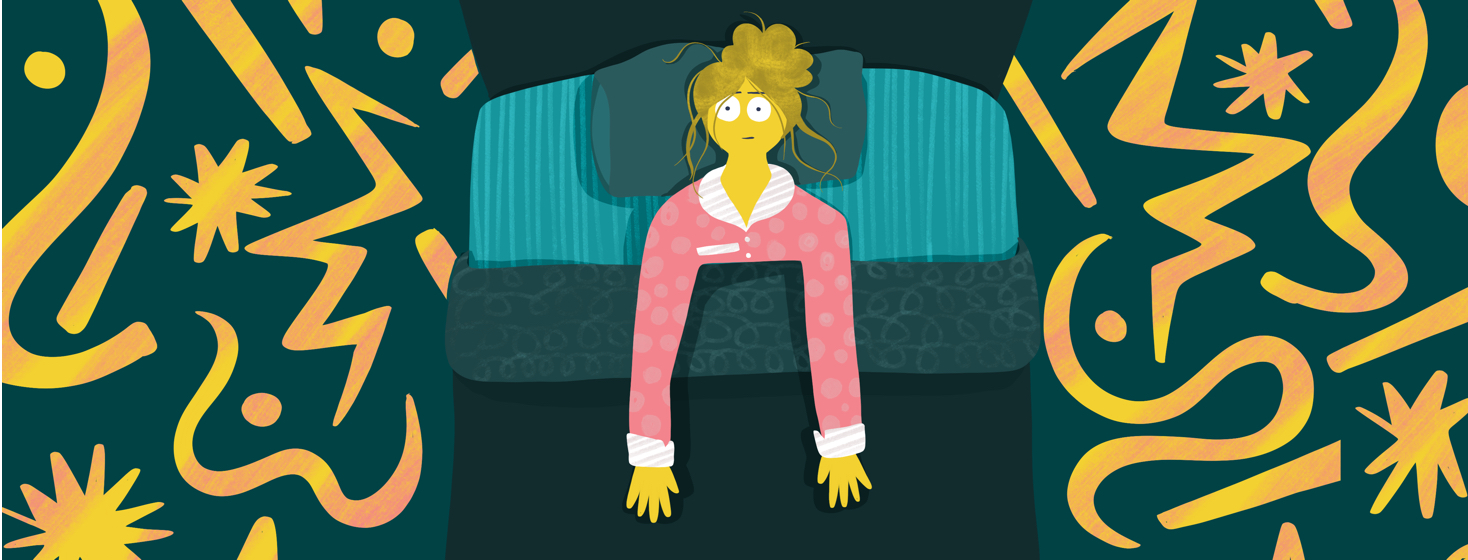Lupus and Anxiety: Symptoms, Diagnosis and Treatment
In part 1, we discussed what anxiety is, how it can be diagnosed, and if it can make our lupus symptoms worse. Now let’s take a look at the signs and symptoms of anxiety, how it is diagnosed and what treatments are available.
We have all likely seen a panic or anxiety attack on TV or in the movies. In those situations, the person is usually outwardly struggling and vocal about what is going on inside their body. But that is not the only way anxiety may present itself. In many people, there will be no outward signs at all that they may be struggling. So, what are the signs and symptoms of anxiety or panic?
Anxiety signs and symptoms
People who have a generalized anxiety disorder will have excessive anxiety and/or worry almost every day for a minimum of six months. They may worry about any number of things like work, upcoming social interactions, daily life, or their personal health. The fear or worry that they experience creates significant problems in almost every aspect of their lives. Symptoms of generalized anxiety include:1
- Fatigue
- Being irritable
- Feeling on-edge, restless, or wound up
- Tension in muscles
- Problems controlling feelings of worry
- Trouble sleeping - including problems falling asleep, staying asleep, being restless, or not feeling rested after sleep.
Panic disorders
People who have a panic disorder have reoccurring unexpected panic attacks. These attacks are unexpected periods of intense fear or worry, and in most cases, the peak of the attack is reached within minutes. They can be brought on by a trigger, like a feared person, item, or situation, or maybe totally unexpected. Symptoms of a panic attack include:
- Sweating
- Having heart palpitations, feeling like your heart is pounding, or like your heart is going a million beats an hour
- Feeling like you are having a hard time catching your breath, like you are being smothered or choking.
- Feelin of impending doom
How is anxiety diagnosed?
In order for you to be diagnosed appropriately, it will require a trip to the doctor’s office. While you are there, the doctor will likely perform a physical exam while asking you about your symptoms. This is where you need to be willing to be totally open and honest about how you have been feeling and what has been going on. If you are unwilling to be totally honest, you may not get the care you deserve because providers can’t read your mind. While at the doctor’s office, they may also want to get some lab work to rule out any potential causes of your anxiety. Depending on your symptoms, your provider may request that you seek care from a psychiatrist or counselor to ensure you get the best care possible.
How can I treat my anxiety?>
Medications can treat anxiety, as well as other options. If your provider wants to start you on an anti-anxiety or anti-depressant, make sure they are aware of all the medications you are taking to prevent any possible interactions of medications. But remember that any medication will not cure your anxiety. It simply helps to manage the symptoms. Other treatment options include:2,3
- Make sure you are getting enough, good quality sleep. If you cannot do so, talk to your doctor about potential options for treating insomnia before trying any OTC medications.
- Make sure you eat a healthy, balanced diet and drink the right amount of water every day. There are a wide array of foods that stimulate the brain’s neurotransmitters like dopamine or serotonin. Spend some time loving your pets, if you have any. Animals have been proven to help lower anxiety.
- Exercise has been proven to be an effective tool to lower stress and anxiety. It can actually cause the release of endorphins in the brain that act as a natural pain killer.
- Surround yourself with people who love you, help to remind you that you have nothing to worry about, and make you feel comfortable.
- Find a psychologist or another mental health provider. Cognitive behavior therapy and/or talk therapy can help to find triggers and identify unhelpful thoughts.

Join the conversation